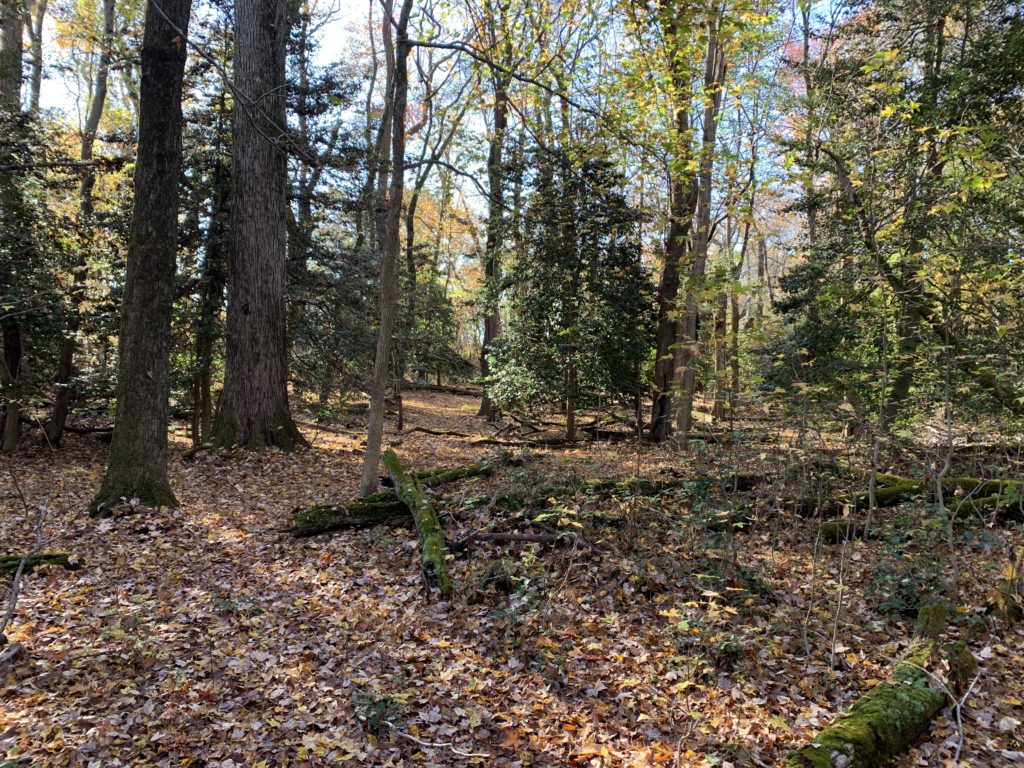

County residents journeyed back in time on Nov. 2 to explore the site of what was once William Rogers’ mill in Rancocas State Park.
According to geni.com, Rogers is listed as a farmer, miller and distiller near Mount Holly on the road to Rancocas. In 1768, he built a grist mill and distillery near Mount Holly for “apple jack” and “cherry bounce” and a factory for making cement from oyster shells.
“By that time, he was a guy in his 50s, by the time of the American Revolution,” said Eric Orange, historian for the county’s parks department, of Rogers. “They list him in family stories as an ‘express rider’ during the American Revolution.”
“I had one woman come out here with me last year … and she just watched the leaves fall,” he added of the mill site. “She was so excited by the change in seasons, and she just spun around in circles and said, ‘This is like a dream.’”
A feature of the historic park is its tranquility and insulation from noise.
“Everywhere in New Jersey there’s the constant (sound) of traffic,” Orange noted. “The New Jersey Turnpike is less than two miles from here … If you go to the Hainesport side of the state park and you get out to the creek, the turnpike is right there.”
“Getting to that point you go through paradise, and you really do feel like on a day where there’s nobody around, like a pioneer, those pioneers who came out here and just hacked a living out of the wilderness,” he added.
Orange has been with the parks department for 10 years and admires the county’s roots.
“The wonderful thing about Burlington County is what a long and illustrious history we have,” he explained. “We start off with the Lenape Indians – the Native Americans – and before that, the natural history, the Ice Age and how it affected Burlington County …
“Then of course, the original Americans, the Native Americans came in, then the Europeans (and) the Quaker history,” Orange added. “I do a talk about Quaker court cases from the 1690s. So at the same time they’re having witch trials in Massachusetts, here in Burlington County, it’s a little more tame.”
“I like to say that crimes are all the same, but the punishments are so dreadfully different.”
Orange shared something he’s noticed when researching county history.
“The real surprise is that we don’t have more of these stories,” he pointed out. “That we don’t know more about William Rogers, that they didn’t go to more places – the British and the Hessians – and maybe they did.”
“There are stories (that) we just don’t know about, and that could be it, but this one was important enough that it was in the local history books, and it was also in local newspapers as late as the 1950s,” Orange added.
“If I can leave you with one thing, it’s to remember that the American Revolution happened here.”









